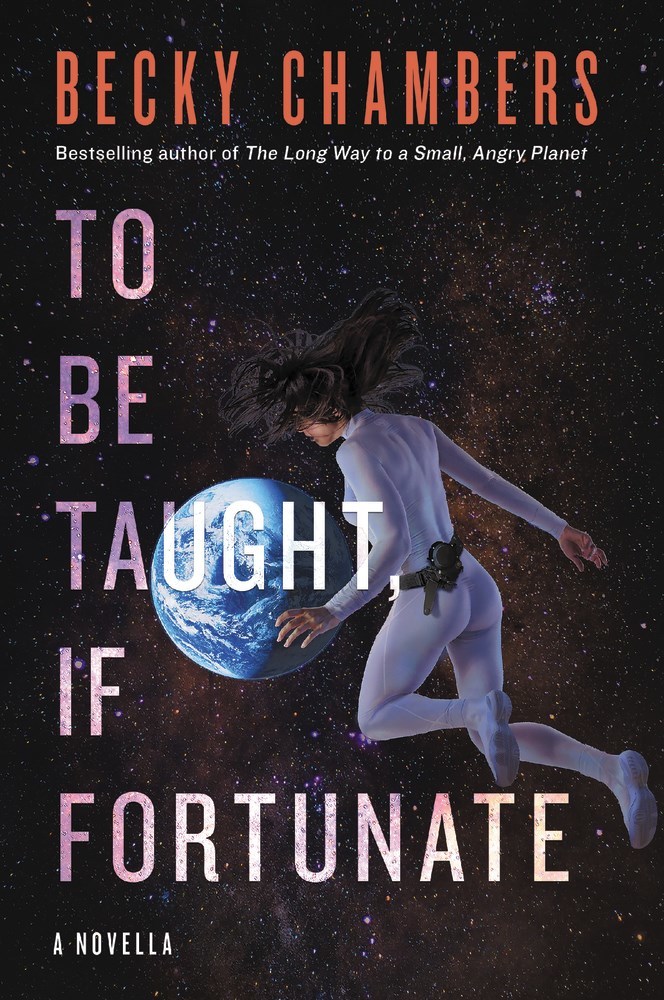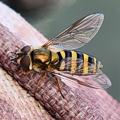zemoko reviewed Apprendre, si par bonheur by Becky Chambers
L'exploration par amour de l'exploration
4 stars
Le roman est écrit à la première personne, il s’agit du rapport envoyé par Ariadne O’Neill, notre narratrice, ingénieure à bord du Merian, un vaisseau spatial terrien partis avec 4 astronautes à son bord pour explorer des exoplanètes susceptibles d’abriter la vie.
Nous sommes aux débuts du 22e siècle. On comprends que les États ont arrêtés de financer la recherche spatiale, « Comment penser aux étoiles quand les océans débordent ? Comment s’intéresser aux écosystèmes aliens quand la chaleur rend les villes inhabitables » mais que certains ont refusé cet abandon et ont redonné un second souffle à la conquête spatiale sous la forme d’un projet participatif, le GAO. Plus de politiques, plus d’intérêts ni nationaux ni économiques. L'exploration par amour de l'exploration.
Nous ne sommes pas très éloignés dans le temps, mais nos 4 astronautes ne se posent pas la question de la possibilité d’une vie extraterrestres. Ils savent …
Le roman est écrit à la première personne, il s’agit du rapport envoyé par Ariadne O’Neill, notre narratrice, ingénieure à bord du Merian, un vaisseau spatial terrien partis avec 4 astronautes à son bord pour explorer des exoplanètes susceptibles d’abriter la vie.
Nous sommes aux débuts du 22e siècle. On comprends que les États ont arrêtés de financer la recherche spatiale, « Comment penser aux étoiles quand les océans débordent ? Comment s’intéresser aux écosystèmes aliens quand la chaleur rend les villes inhabitables » mais que certains ont refusé cet abandon et ont redonné un second souffle à la conquête spatiale sous la forme d’un projet participatif, le GAO. Plus de politiques, plus d’intérêts ni nationaux ni économiques. L'exploration par amour de l'exploration.
Nous ne sommes pas très éloignés dans le temps, mais nos 4 astronautes ne se posent pas la question de la possibilité d’une vie extraterrestres. Ils savent qu’elle existe, et l’ont toujours su.
"Je n’ai jamais connu une Terre qui ignore l’existence de la vie ailleurs. Vingt-neuf ans avant ma naissance, la sonde Cetus a effectué dans les geysers d’Europe des prélèvements riches en bactéries ; quand mes parents faisaient leurs études, les rovers de Mars ont envoyé des photos d’arthropodes fossilisés. Je n’imagine pas l’époque de la solitude avant cela, quand nous voyions la Terre comme une oasis dans le désert galactique. J’aurais aimé la vivre, je crois."
C’est court, mais dense. Ce n’est pas de la hard science, pas du space opéra, mais ça reste une vraie réflexion sur le besoin de l’humanité d’explorer de de comprendre. C’est rassurant aussi car c’est de la science-fiction positive qui, sans faire l’impasse sur l’état de la planète Terre, sans pulsions guerrières, sans intrigues politiques, elle relate “juste” une saine curiosité.
Ce n’est tout de même pas un roman trop simpliste, car Becky Chambers n’évacue pas les difficultés techniques posées par le voyage spatial. Les trajets sont longs, très longs, et nos 4 astronautes sont donc placés en sommeil artificiel dans un vaisseau totalement automatisé. Ce sommeil ralentit leur vieillissement, mais ne l’arrête pas. À chaque reveil, ils constate les stigmates du temps qui passe. Pas d’étonnement et pas de regrets ici, ils le savaient, ils s’y étaient préparés, c’est le prix à payer et ils sont heureux de la payer par amour de la science, pour satisfaire leur curiosité, et celui de l’Humanité toute entière.
De la même manière, les messages du Merian mettent 14&nbp;ans à atteindre la Terre, tout comme ceux de la Terre mettent 14 ans à leurs parvenir. Peu d’humain ont été aussi isolés, et il est compliqué de se sentir concernés par les nouvelles qui leurs parviennent, en sachant que ce sont déjà plus des nouvelles alors même qu’ils ont l’impression, eux, d’être parti hier…
Beck Chambers ne fait pas non plus l’impasse sur la question du transhumanisme. À chaque nouvelle planète, des patchs déclenchent de subtiles modifications, réversibles, sur le corps de nos 4 astronautes. Des paillettes incrustées dans la peau sur une planète éloignée de son soleil, pour mieux réfléchir la lumière, ou au contraire une peau plus épasse sur une planète soumisse à un rayonnement massif d’ultraviolet. Tout comme l’exploration du GAO est très différente des programmes de la Nasa ou de l’ESA, et encore plus de de ceux de SpaceX, ces réponse donnent envie de croire à la possibilité d’un technosolutionnisme, bien éloigné lui aussi des délires d’Elon Musk et de Neuralink.
Bref, vous l’aurez compris, j'ai beaucoup aimé cette lecture. C’est court mais pas sans profondeur, c’est original et ça donne envie de croire à la possibilité de l'émergence d'une science positive




